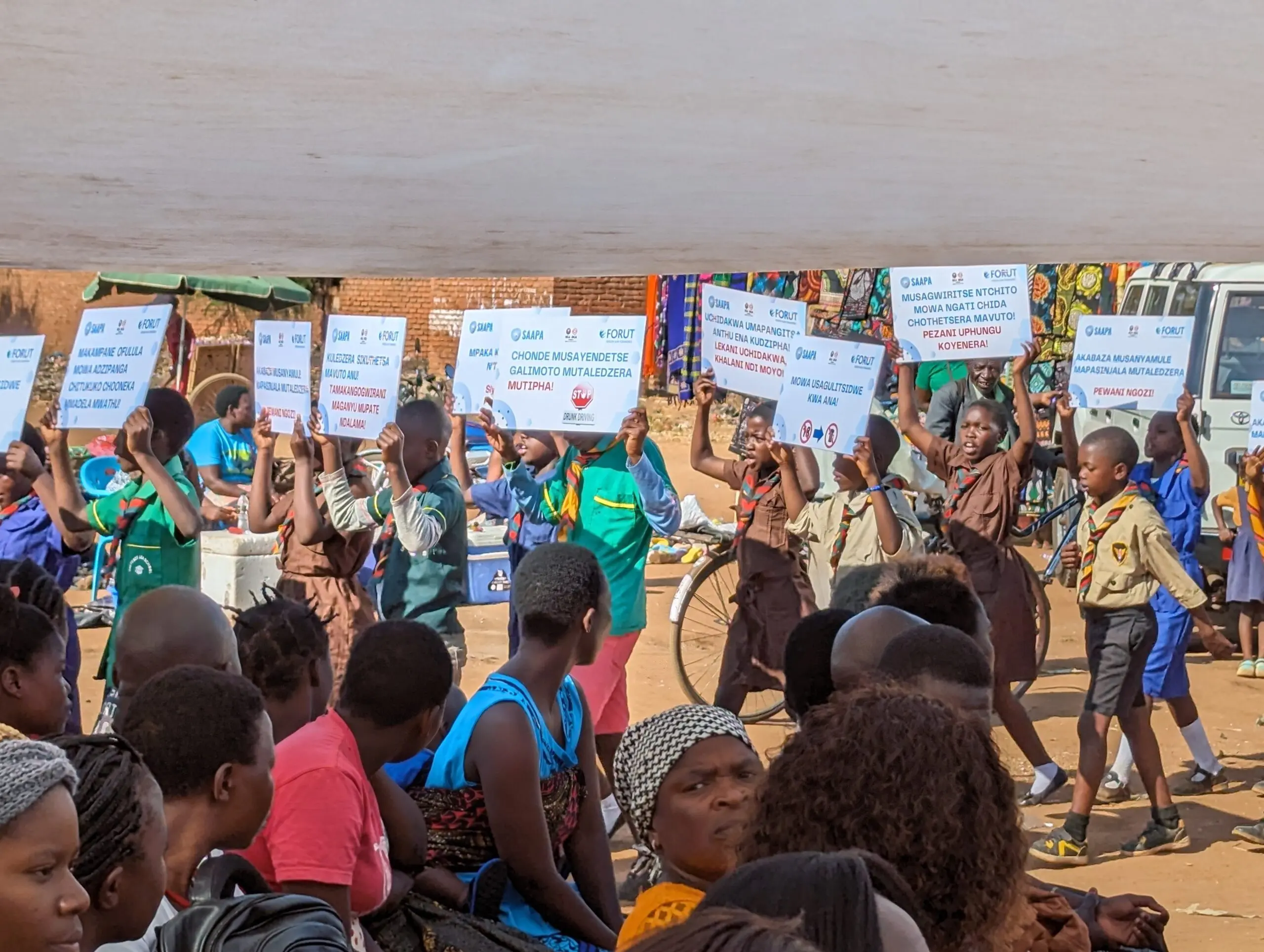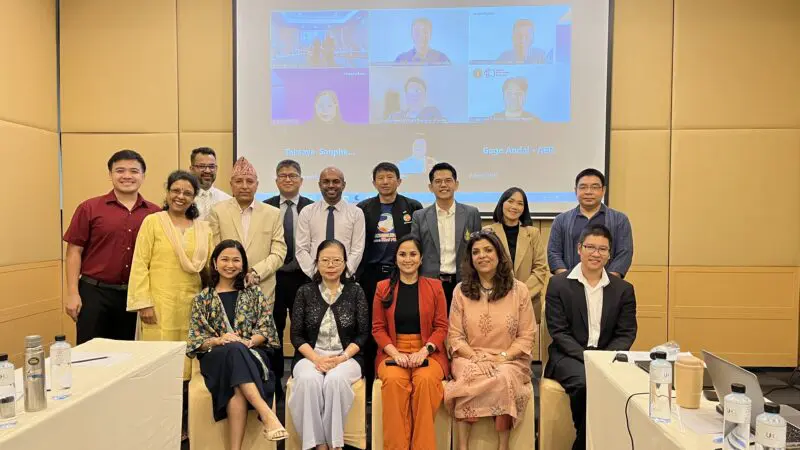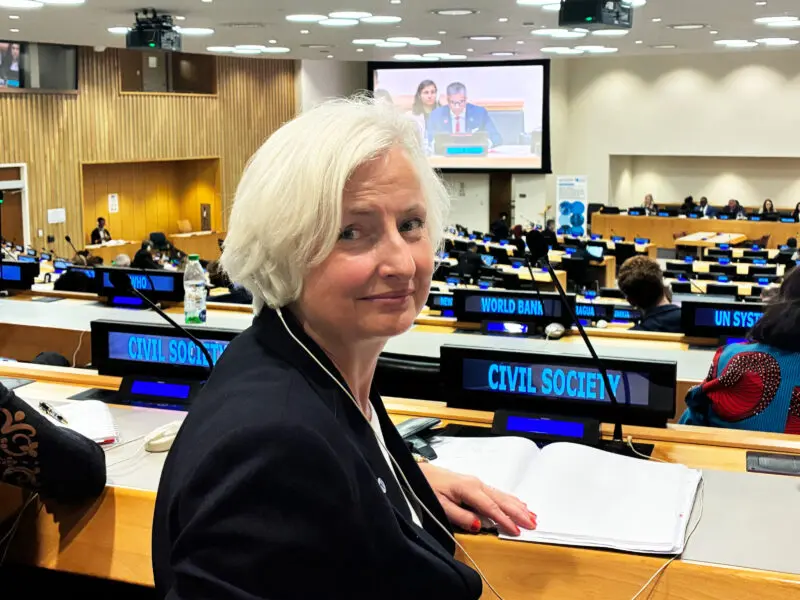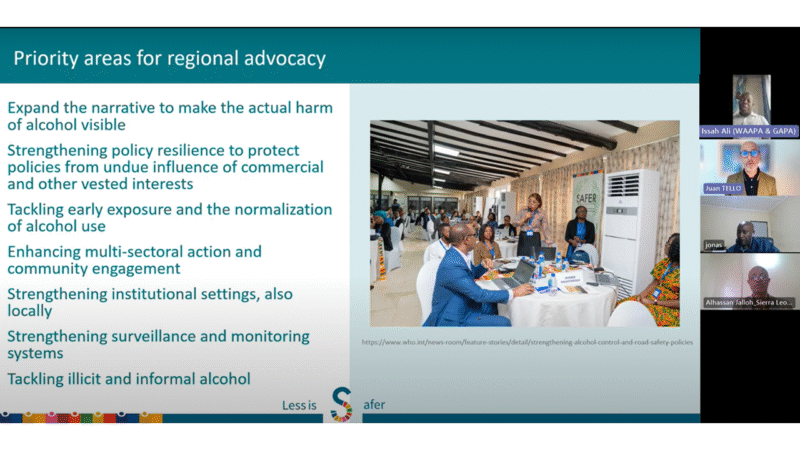Following the first Annual General Meeting on June 4th 2024, the Malawi chapter of the Southern African Alcohol Policy (SAAPA) was launched in Four Ways, Lilongwe, Malawi, on June 5th 2024.
In the presence of the local traditional leaders, ministry officials, district council members and the guest of honour, the deputy Director of Clinical and Medical Rehabilitation Services, Dr Jonathan Chiwanda, the SAAPA chapter was celebrated with a huge crowd from the local community.
Massive turnout
The launch was staged as a community function by the Malawi Girl Guide Association (MAGGA) and NCA/DCA Malawi with funding from FORUT. It included performances by local and traditional dancers and sensitisation activities by local groups of young activists against alcohol harm. The crowd was engaged and entertained throughout the day.

The highlight was a football match between two local teams battling for 100 000 Kwacha in addition to the status as heroes of the over 5000 people that watched the game.
Policy implementation urgently needed
The Malawi chapter currently has a membership of 23 organisations across the country, but after the launch more organisations will join in. The secretariat is hosted by NCA/DCA Malawi, and the chapter has a seat on the board of the SAAPA regional body alongside the other chapters in the region; Lesotho, Botswana, South Africa, Namibia, South Africa, Zimbabwe, and Zambia.
The newly elected board chairperson of the Malawi chapter, Mr. Jefferson C. Milanzie, addressed the audience, stressing the importance of a unified voice and collective effort within civil society to combat alcohol harm in the country. Of specific urgency is accelerating the implementation of the national alcohol policy adopted in 2017, Milanzie said, and underlined that the alliance will fill the role both as watchdog and supporter of government in these efforts.
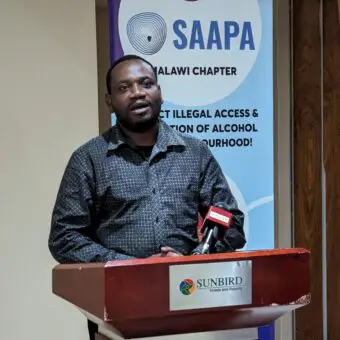
Malawi has already successfully banned alcohol sold in small sachets that is considered a plague across Sub Saharan Africa. It makes strong alcohol readily available also for the less affluent part of the population.
However, in the wake of the ban, alcohol producers have replaced the plastic sachets with small glass bottles to circumvent the ban. In addition, the enforcement of the ban of homebrewed illicit alcohol is not effective and even non-existent in many places, ultimately making alcohol both affordable and accessible to both young and adult drinkers. Adding to the negative situation is the lack of regulation on sales hours.
All these challenges are identified by the national SAAPA chapter in Malawi and is experienced across Southern African region, and recent reviews state that Sub Saharan Africa has a higher burden of alcohol-related harm than the global average.
Enough is enough
FORUT has contributed with funds and support for the establishment of the chapter, and was also present at the launch, represented by Senior Advisor Therese Vangstad and Dr Eva Braaten.
Braaten congratulated SAAPA and the organisations that have made the national alliance come to life and expressed that the existence of the SAAPA Malawi alcohol policy alliance is a big step for Malawi and all those that are suffering from harms caused by alcohol use; those affected by their relative’s hazardous and even life-threatening drinking; those who are forever scarred by drunk-driving accidents; and those who themselves suffer from diseases caused by their own drinking.
Braaten continued to say that it is also a big step for Southern Africa, a region who is experiencing an epidemic of alcohol harm, but who now sees yet another country, the 7th in line, forming a country chapter of SAAPA.

Braaten stressed how the SAAPA Malawi chapter will be the voice of a strong civil society telling its government that enough is enough. A civil society that refuses to see people’s health and security sacrificed to satisfy profit-driven alcohol producers. A civil society that steps up and holds government accountable for the implementation of the Malawi alcohol policy.
Finally, Braaten said, this is a big step globally, because Malawi joins the global movement for the betterment of people affected negatively by the use of alcohol.



